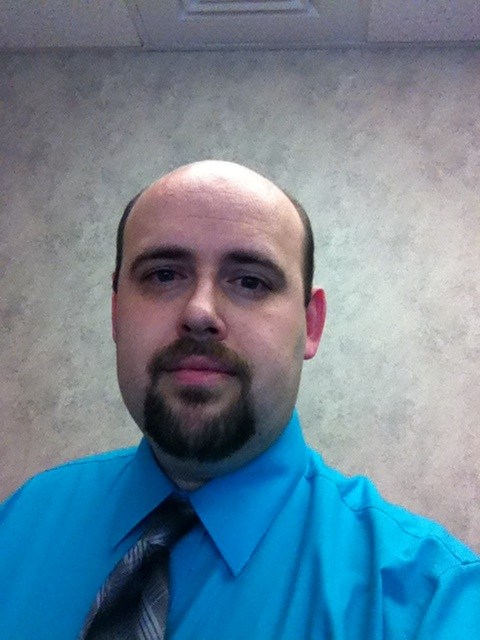These kinds of situations can create a confluence of undisclosed interest, a phenomenon that can call into question even further the accuracy of media investigation and reporting.
Bias, Expectations, and the Role of the Media in Reporting on Religion
By Matthew C. Durham, University of Tennessee at Chattanooga
Published by the Religious Studies Project, on 10 April 2013 in response to the Religious Studies Project Interview with Teemu Taira on Religion and the Media (8 April 2013).
In their discussion of Religion and the Media, Christopher Cotter and Dr. Teemu Taira touch on some rather deceptively salient points. Dr. Taira’s comments about the media as a means of establishing a collective identity springs first to mind. If this is true, and it does not seem controversial to assume such, the responsibility placed upon the media is tremendous. This is especially so if we also assume that the role of the media is to accurately convey reality as it is. Perhaps this is too idealized an expectation? After all, members of the media are just as tied to their own biases, expectations, and subjective viewpoints as any of the rest of us.
But regardless of the sometimes overwhelming complexities in conveying an accurately factual picture of reality, it seems reasonable to expect of the media that it can separate at least some of the proverbial chaff from the wheat.To wit; some ideas, when surreptitiously conflated, present a picture of reality that is about as far from factual as is possible. Dr. Taira mentions a particular example of this when he discusses the use of the ambiguous “Christian Nation” concept. His description of its use in the UK seems strongly akin to how it is used here in the USA, in that its meaning varies between something along the lines of “we recognize our cultural Christian heritage” to “our legal system should reflect Christian theology.” This sort of factual versus normative ambiguity can serve multiple purposes, and in cases like these it is important to determine who benefits from it such that we can decide whether perpetuating it does a disservice to our collective epistemic integrity.
In this particular example, Dr. Taira notes that this ambiguity can be very beneficial to liberal Christianity in maintaining its cultural pre-eminence. While it is not immediately clear why Dr. Taira limited this benefit to only liberal Christianity in the UK (Given the theological ambiguity in the term “Christian,” it would seem to potentially benefit conservative Christianity just as well.), the overall point is well taken. When the media fails to determine or disclose the intent or interests of a speaker, it can be seen as little more than a mindless megaphone. This problem is compounded in light of Dr. Taira’s comments about the tendency amongst religion reporters to be more religious (and more friendly to religion) than the surrounding population. These kinds of situations can create a confluence of undisclosed interest, a phenomenon that can call into question even further the accuracy of media investigation and reporting.
Other important areas of study require (or strongly encourage) that investigators acknowledge their personal interest in certain outcomes. Investigators in clinical drug trials, for example, must provide disclosure of financial interest prior to their involvement in a study such that their methodology and the integrity of their data can be evaluated with appropriate caveats. And beyond the personal benefits of cultivating this level of honesty, such disclosure can also benefit us in that it can strongly motivate the development of ever more thorough research methodology. A researcher who provides potential critics with disclosure of his or her biases, for example, is going to be all the more motivated to preempt any undue influences from those biases – thus preventing critics from dismissing the research on grounds of undue bias.
It might be suggested that, due to the very different contexts in which the two operate, the media should not be held to the same standards as are academic or clinical researchers. But if we intend that the media be not only a means to establish a collective identity,but that it also function to inform us through an attempt at accurately conveying a factual picture of reality; then there would seem to be some potential benefit in the media looking to academic or clinical research for guidance.
One of these potential benefits may be in counteracting epistemic and moral polarization through the tendency in media consumers to seek out only those media providers that they perceive as confirming or reinforcing their own expectations, biases, or connections to other people or groups with which they share significant commitments. Dan Kahan’s research on communication of scientific information, for example, suggests that people not only seek out providers of information who appear to reflect their own values, but that they develop a form of “protective cognition” that pre-emptively determines what sort of information is credible. People whose values are more egalitarian and who are suspicious of industry, for example, might see industrial activities as being more risky and thus more appropriately subject to restriction or regulation. And they will likely seek out media providers who reflect those values.
Kahan’s research suggests, though, that presenters of scientific information can preclude this tendency and reduce polarization by muddling up expectations. Kahan tested this by pairing experts whose appearance (besuited and gray-haired versus denim-shirted and bearded) and publication history fit particular cultural expectations. He then paired these experts with arguments that contradicted those expectations. The besuited and gray-haired expert, for example, presented arguments in favor of the scientific legitimacy of climate change while the denim-shirted and bearded expert criticized it. Without these expectations to rely upon, “people shifted their positions and polarization disappeared.”
It seems quite plausible that the results of Kahan’s research could also be applied to more than just the presentation of scientific information. If part of the media’s purpose is to genuinely inform us rather than to reinforce our existing polarized beliefs, then there may be a lesson to be learned here. The lesson is not that the media should attempt to push any particular idea for broader cultural acceptance. Rather, and to again reference Kahan, perhaps the media could confound those expectations in such a way as to create an opportunity for a more honest and open-minded consideration of the best information available?
This material is disseminated under a Creative Commons Attribution-NonCommercial-NoDerivs 3.0 Unported License. and can be distributed and utilised freely, provided full citation is given.
About the author:
 In his professional capacity, Matthew Durham has worked in over 150 studies in the field of cancer research as a Regulatory Coordinator for a large physician owned oncology practice. He spends most days striving to learn and improve upon a variety of industry best practices, as well as devise useful metrics through which the efficacy of those practices can be evaluated. In his academic life, he is an Undergraduate Philosophy and Religion major at the University of Tennessee Chattanooga whose main areas of focus are religious exegesis, religious epistemology, and philosophy of science. His current interest is in studying the cognitive processes through which religious experiences are both interpreted and later recalled. Most importantly, he is the lucky husband of an exceptional woman and the proud father of a precocious toddler.
In his professional capacity, Matthew Durham has worked in over 150 studies in the field of cancer research as a Regulatory Coordinator for a large physician owned oncology practice. He spends most days striving to learn and improve upon a variety of industry best practices, as well as devise useful metrics through which the efficacy of those practices can be evaluated. In his academic life, he is an Undergraduate Philosophy and Religion major at the University of Tennessee Chattanooga whose main areas of focus are religious exegesis, religious epistemology, and philosophy of science. His current interest is in studying the cognitive processes through which religious experiences are both interpreted and later recalled. Most importantly, he is the lucky husband of an exceptional woman and the proud father of a precocious toddler.
References
Kahan, D. (2010). Fixing the communications failure. Nature, 296-297.



